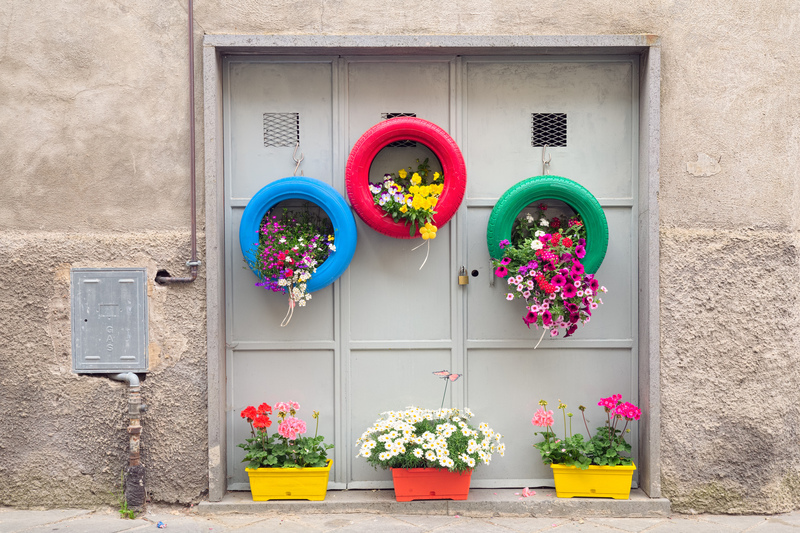Essential Tips for Skip Hire: Dos and Don'ts Unveiled
Skip hire is an indispensable solution for efficient waste removal, whether you're undertaking a home renovation, clearing garden waste, or managing construction debris. However, to get the best value from your skip rental and avoid potential pitfalls, it's vital to understand the essential dos and don'ts of hiring a skip. This comprehensive guide unveils expert tips, common mistakes to avoid, and practical advice for a smooth experience with skip hire services.
Understanding Skip Hire: A Brief Overview
Before diving into the dos and don'ts of skip hire, it's important to get a clear grasp of what skip rental involves. In essence, skip hire refers to obtaining a large container--the skip--from a waste management company. These containers are available in various sizes and are designed for temporary placement on residential, commercial, or industrial properties to collect and transport unwanted materials and rubbish.
Why Choose Skip Hire?
- Convenient waste disposal for large or bulky items
- Time-saving--no need for multiple trips to local recycling centres
- Cost-effective for volume waste removal
- Eco-friendly with many companies offering recycling services
- Enhances safety by keeping workspaces clear
Common Skip Hire Uses
- Home renovations
- Garden clear-outs
- Construction projects
- Office and commercial clean-ups
- Festivals and events

The Dos of Skip Hire: Maximise Efficiency and Value
To ensure your skip hire experience is straightforward and stress-free, follow these essential skip rental dos:
1. Choose the Right Skip Size
Selecting the correct skip size is paramount. Underestimating your waste volume leads to extra costs for additional skips, while oversizing wastes money.
- Mini skips (2-4 yards): Perfect for small domestic projects, like garden clearances.
- Midi skips (6-8 yards): Ideal for kitchen, bathroom renovations, or moderate debris.
- Builder's skips (10-12 yards): Suitable for bulky construction rubble or larger home renovations.
- Roll-on roll-off skips (20-40 yards): Designed for major commercial or industrial tasks.
Tip: When in doubt, consult with your local skip hire company for professional advice on selecting the best container size for your needs.
2. Obtain Necessary Permits
If you plan to place your hired skip on a public road, pavement, or footpath, you'll likely need a skip permit from your local council. Failing to secure the appropriate license can result in fines or forced skip removal.
- Check local regulations before the skip's arrival.
- Allow extra time for permit processing--may take several days.
- Your skip provider may handle permit applications on your behalf-- always ask!
3. Plan Your Skip Placement
Choosing a safe and accessible spot for your skip is crucial for smooth drop-off, use, and collection:
- Ensure firm and level ground--avoid soft grass, sloping driveways, or uneven surfaces.
- Keep the skip close to the property for easier loading.
- Leave enough clearance for delivery and collection trucks.
- Don't block emergency exits or driveways.
Avoid potential damage to your property by placing boards beneath the skip if necessary.
4. Separate Waste Responsibly
Environmentally responsible skip hire involves segregating waste:
- Keep hazardous materials (asbestos, paints, batteries, electrical appliances) out of general skips.
- Use dedicated skips for specific waste (plasterboard, soil, hardcore) if required.
- Recycle whenever possible--many skip hire services offer mixed recycling options.
5. Fill Your Skip Safely and Efficiently
Proper loading ensures optimal space usage and safe transport:
- Break down bulky items to save space.
- Layer flat materials (like wood or metal sheets) at the base.
- Keep heavy items on the bottom and lighter waste on top.
- Evenly distribute weight to avoid tipping issues.
- Never overload above the skip's "fill line".
Why? Skips filled beyond their top edge can't be collected safely and may incur additional charges or reloading fees.
6. Communicate with Your Skip Hire Provider
- Double-check timelines for drop-off and collection to fit your project schedule.
- Discuss specific waste types you intend to dispose of.
- Ask about hidden fees for permits, overweight skips, or restricted materials.
The Don'ts of Skip Hire: Common Pitfalls to Avoid
While skip hire is generally simple, there are some critical "don'ts" that can prevent legal issues, additional expenses, or disruptions in your project.
1. Don't Dispose of Prohibited Items
Most skip hire companies enforce strict regulations on what you can and cannot dispose of in a skip. Common prohibited items include:
- Asbestos (dangerous carcinogen, needs specialist disposal)
- Electrical appliances (WEEE waste)
- Paints, solvents, oils, or chemicals
- Batteries and tyres
- Gas cylinders and pressurized containers
- Fluorescent tubes
- Medical waste
Contact your skip hire company for advice on how to handle these materials or find a specialist disposal service.
2. Don't Overfill the Skip
- Never fill above the skip's sides--it's illegal for transport and may be rejected by the collection crew.
- Overfilling can cause waste to fall out and create hazards during transit.
3. Don't Block Public Access or Breach Parking Rules
- Observe parking restrictions if placing a skip on public roads.
- Don't block bus stops, cycle lanes, gates, or pedestrian footpaths.
- Check permit terms for required warning lights or reflective markings, especially at night.
4. Don't Ignore Weight Limits
- Each skip has a maximum weight load; overloading may damage the skip or vehicle and result in extra charges.
- Soil, bricks, rubble, and concrete are very heavy--use appropriately sized skips (generally 8-yard skips or less for heavy waste).
5. Don't Burn Waste in the Skip
- Burning rubbish in a hired skip is illegal and can damage the skip, incur cleaning charges, and risk penalties from authorities.
6. Don't Keep the Skip Longer Than Agreed
- Most skip hires are for a set duration. Extending use without notice often brings additional daily charges.
- Aim for efficient project management to avoid holding the skip beyond your rental period.
What to Look for in a Reputable Skip Hire Company
Not all skip rental services are created equal. For a hassle-free skip hire experience, consider these factors:
- Proper Licensing: Choose companies registered with the Environment Agency or local authority.
- Transparent Pricing: Get a full breakdown of all costs--delivery, collection, permits, potential penalties for incorrect waste.
- Wide Range of Sizes: Ensure the provider offers skips suitable for your specific needs.
- Customer Reviews: Check testimonials and ratings on platforms like Trustpilot or Google.
- Clear Waste Policy: Make sure they provide clear instructions on what can be placed in their skips.
- Recycling Commitment: Opt for responsible providers who prioritise recycling and landfill diversion.
Sustainable Waste Management: The Green Side of Skip Hire
Today's modern skip hire sector is committed to eco-friendly practices:
- Advanced sorting facilities for recycling wood, metals, plastics, and soil
- Landfill reduction targets to lessen environmental impact
- Education for customers on segregating and reducing waste
By choosing a sustainable skip hire company and following their guidelines, you play a crucial part in the responsible disposal and recycling of unwanted materials.
Frequently Asked Questions about Skip Hire
How long can I keep a hired skip?
Skip hire durations typically range from a few days to two weeks. Extension requests should be made in advance to avoid extra charges.
Do I need to be present for delivery and collection?
Most companies only require clear instructions on placement. It's helpful to be present if space or access is restricted.
Can I move the skip after it's been placed?
Do not attempt to move a skip yourself--these are heavy containers. If repositioning is required, contact your skip hire company for assistance.
What happens to my waste after collection?
Collected skip waste is taken to licensed waste transfer stations, where it is sorted, recycled, or disposed of according to environmental guidelines.

Final Checklist: Maximise Your Skip Hire Experience
- Assess your waste volume and choose the right skip size.
- Secure necessary permits in advance.
- Plan a safe, convenient spot for delivery.
- Understand what can and cannot go into your skip.
- Fill the skip level and load safely.
- Adhere to local regulations and provider instructions.
- Prioritise sustainable and ethical disposal.
Conclusion: Effortless and Responsible Skip Hire Starts Here
Mastering the nuances of skip hiring--from choosing the right size to avoiding illegal waste--is key to a smooth, stress-free experience. By following these essential tips for skip hire, you ensure compliance with local laws, protect the environment, and get the most out of your investment. Whether clearing a garden, renovating a kitchen, or tackling a sizable construction project, smart skip hire practices underpin efficient and responsible waste management.
Ready to start your clutter-free journey? Contact a reputable skip rental service in your area today and put these dos and don'ts into action for waste disposal made easy.